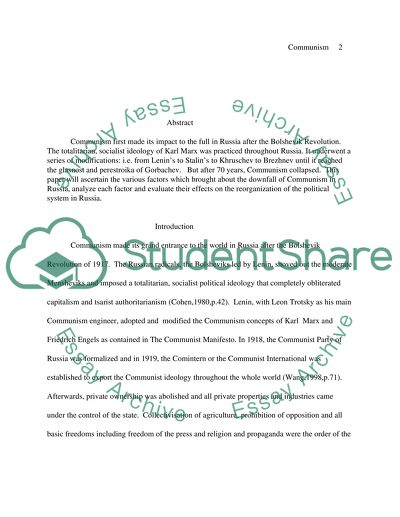Cite this document
(“Failure of Communism in Russia Essay Example | Topics and Well Written Essays - 1500 words”, n.d.)
Retrieved from https://studentshare.org/miscellaneous/1519140-failure-of-communism-in-russia
Retrieved from https://studentshare.org/miscellaneous/1519140-failure-of-communism-in-russia
(Failure of Communism in Russia Essay Example | Topics and Well Written Essays - 1500 Words)
https://studentshare.org/miscellaneous/1519140-failure-of-communism-in-russia.
https://studentshare.org/miscellaneous/1519140-failure-of-communism-in-russia.
“Failure of Communism in Russia Essay Example | Topics and Well Written Essays - 1500 Words”, n.d. https://studentshare.org/miscellaneous/1519140-failure-of-communism-in-russia.


